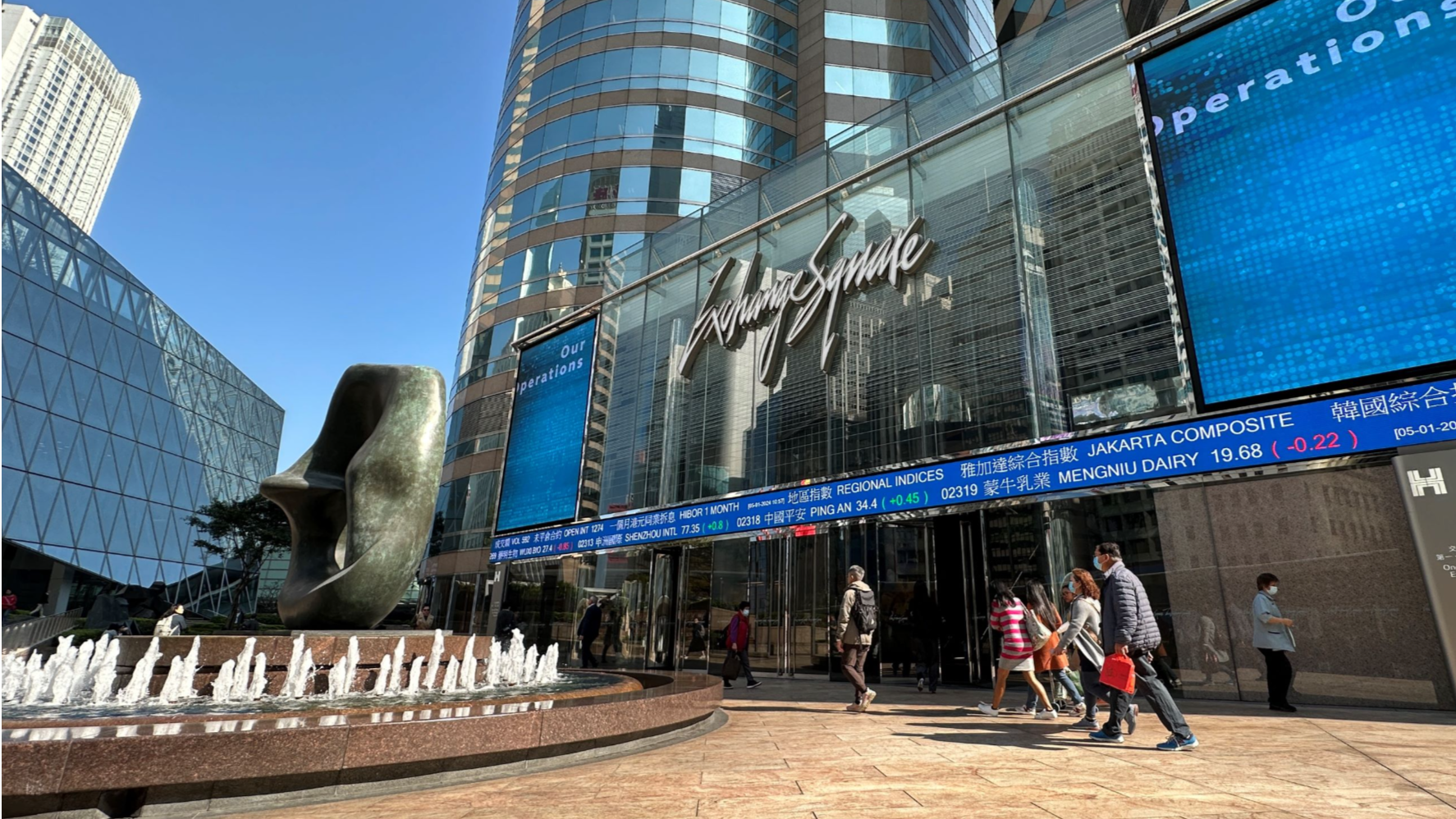
Hong Kong’s market skyrocketed on Tuesday as investors greeted US interest-rate cuts, as well as a slew of measures by the People’s Bank of China to bolster the nation’s economy, including broad monetary easing and property-market supporting measures.
The stock market picked up momentum, with the Hang Seng Index opening 326 points higher and hitting a high of over 19,000 points, the highest level in four months.
The benchmark rallied 4.1 percent to close at 19,000 points, with market turnover reaching HK$242 billion ($31 billion). The Hang Seng TECH Index gained 5.9 percent to close at 3,915 points, while the Hang Seng China Enterprise Index soared 5.1 percent to close at 6,714 points.
READ MORE: HK stock buybacks surge to new high, outnumbering 2023’s total
The stock market benchmark index’s rally was mainly due to gains in Chinese mainland-related shares in the banking, insurance, property and technology segments, which all benefited from the mainland’s monetary policy easing.
PBOC Governor Pan Gongsheng on Tuesday announced a basket of policy support that aims at supporting the general economy, the property market and the capital market by offering a combination of rate cuts, reserve requirement ratio (RRR) cuts, and structural monetary policies at the same time. The central bank governor mentioned the possibility of further reducing the RRR and extending the scale of structural monetary policy.
On top of the latest US Federal Reserve’s rate cut by half a percentage point for the first time in more than four years, the PBOC lowered the RRR to 9.5 percent from 10 percent, reducing the down payment ratio for secondhand housing to 15 percent from 25 percent, cutting the existing mortgage rate by 50 basis points, and trimming the interest rate for seven-day reverse repurchase operations to 1.5 percent from 1.7 percent.
READ MORE: Plan for market trading during bad weather in HK 'faces real-world test'
“This one-off announcement to lower benchmark rates signals the importance the mainland places in supporting domestic demand,” Fidelity International Asian Economist Peiqian Liu said.
“Externally, the Fed's outsized rate cuts last week, along with other major central banks' entering easing mode, has eased the depreciation pressure on the renminbi and provided the PBOC more room to ease monetary policy,” said Betty Wang, a lead economist at think-tank Oxford Economics.
CCB International said the important impact of the US interest rate cut is that the liquidity environment of the Hong Kong dollar market may improve and it may also provide space for monetary policy easing on the Chinese mainland.
“The decline of the US interest rate will weaken the US dollar and strengthen the renminbi, which will highlight the attractiveness of mainland stocks. With low valuations and high safety margins, we believe Hong Kong stocks would be important beneficiaries as improved mainland economic fundamentals will boost the earnings prospects of Hong Kong stocks,” CCB International analyst Cliff Zhao and Wilson Zou said.
READ MORE: China unveils fresh, broad stimulus to boost economy
Value Partners’ Multi Assets Chief Investment Officer Kelly Chung noted that “Hong Kong equities will continue to be well supported by rate cut expectations, as a large part of Hong Kong sectors are interest rate-sensitive, such as property, real-estate investment trusts, telecom and utilities.”
China International Capital Corp said Hong Kong’s H-share market may have greater upside once the Fed starts cutting rates due to its high sensitivity to overseas liquidity and the Hong Kong Monetary Authority’s move to follow in the steps of the US Fed, but the company suggested investors should not aggressively extrapolate the short-term upside potential linearly.
“We suggest investors continue to watch growth stocks that are sensitive to interest rates; Hong Kong’s local high-dividend stocks and real estate sector; as well as stocks in the export value chain boosted by demand from the US real estate sector,” CICC said.


